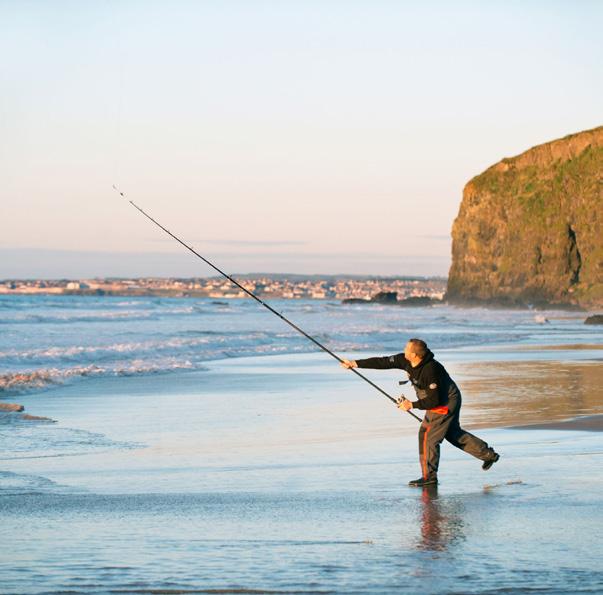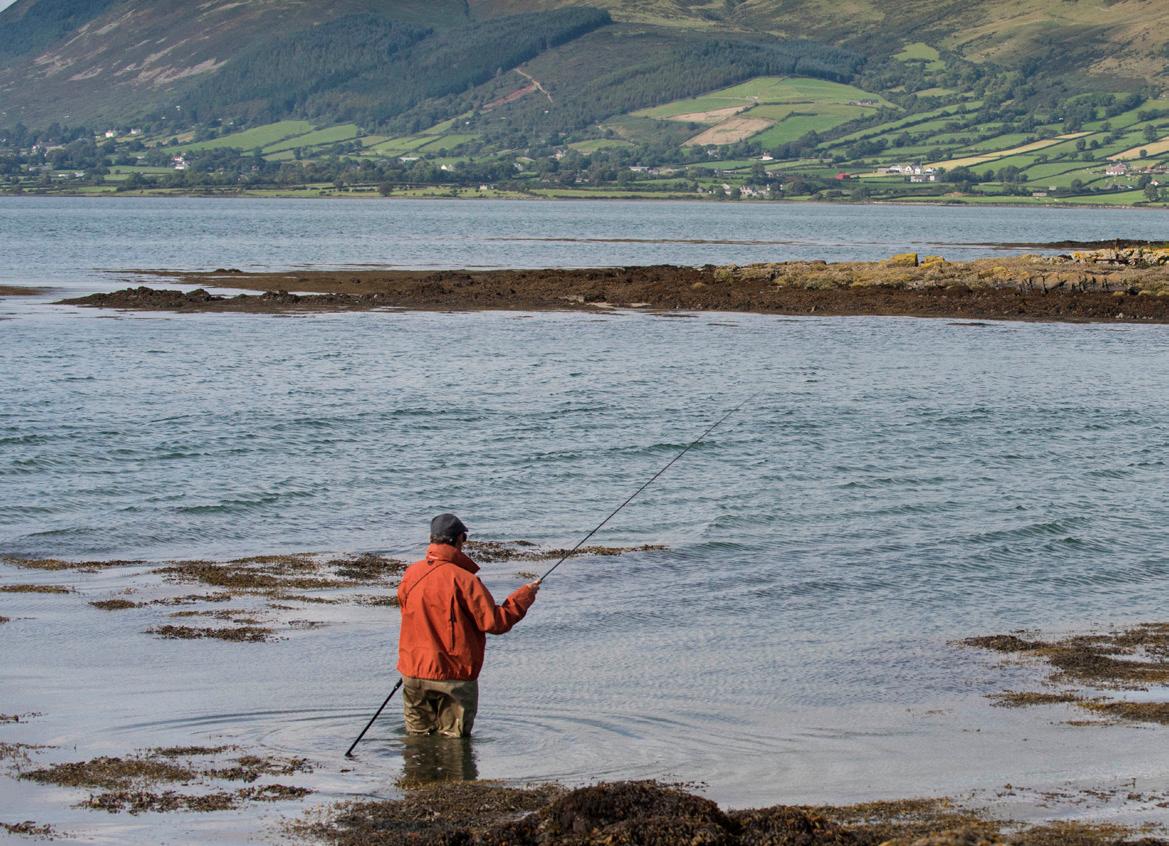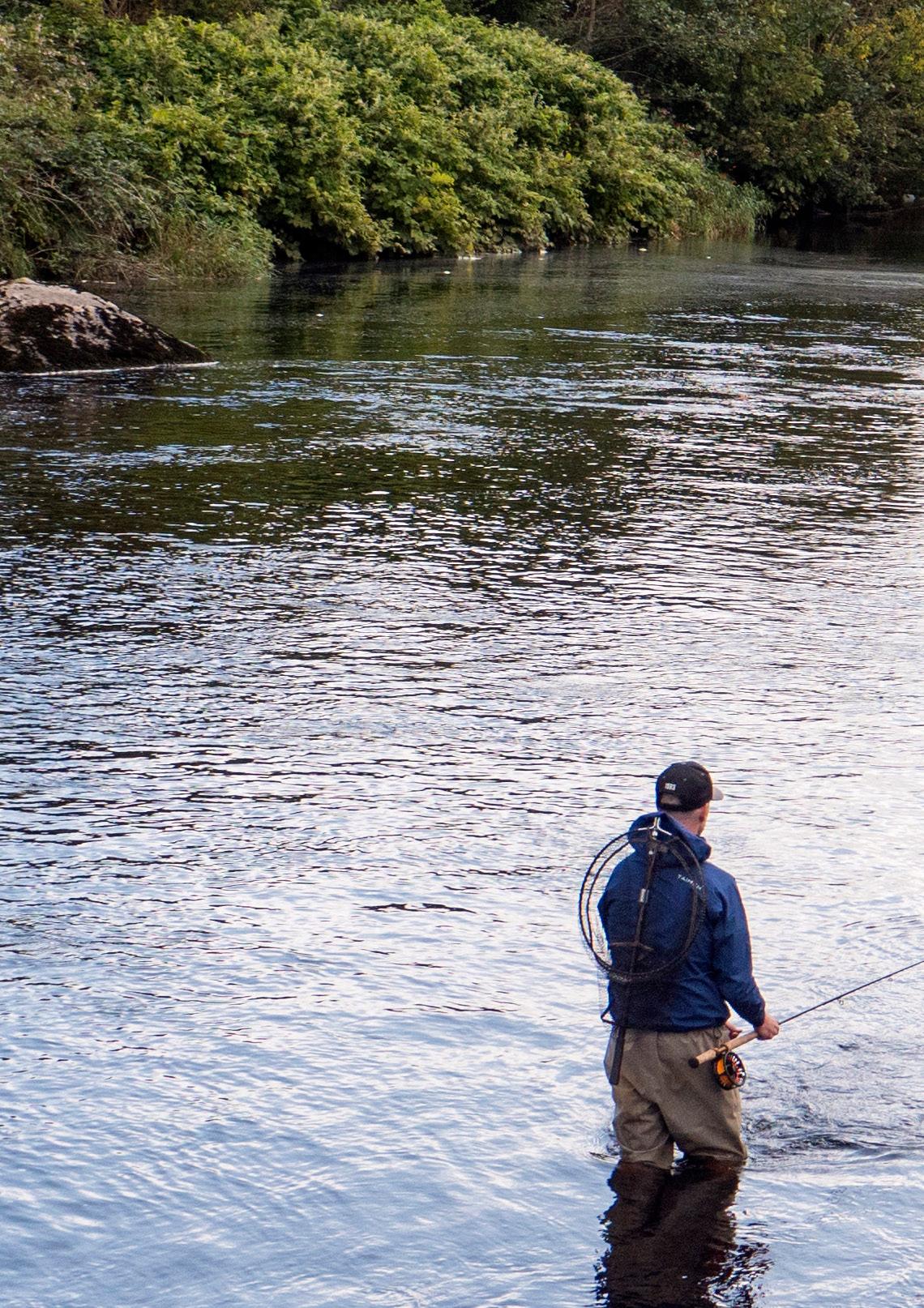 Angling Action Plan for Foyle and Carlingford 2022 - 2030
Angling Action Plan for Foyle and Carlingford 2022 - 2030
 Angling Action Plan for Foyle and Carlingford 2022 - 2030
Angling Action Plan for Foyle and Carlingford 2022 - 2030
Introduction
In 2022 the Loughs Agency published its first Strategic Plan for Fisheries and Angling Development for the Foyle and Carlingford Areas. This strategy document was the result of extensive consultation with the angling clubs and federations who represent all disciplines of angling within these Catchments. The feedback from this consultation guided the development of the Strategic Plan and allowed the Agency to ensure that cognisance was taken of the major issues raised by its stakeholders.
Angling clubs are the driving force behind the management of fisheries on the ground within these catchments and they will play an enormously important role in delivering growth of the sport of angling and in the conservation and development of fisheries going forward. The National Governing Bodies of the sport also have a key role to play in ensuring the clubs are supported to develop their governance, coaching programmes and funding for projects. Private fisheries can also play a part in the development of the sport at a grassroots level as well as being instrumental in the development of the tourism potential of angling.
Communication has been flagged throughout the consultation phase for the Strategic Plan as a major issue that needs to be addressed between the Agency and its stakeholders, many of whom feel disenfranchised by the manner of the management decision-making taking place at present.
A major issue that was repeated during the consultation for the Strategic Review process by many clubs and federations was the reducing fish stocks and the links to poor water quality and pollution. The enhancement and conservation of fish stocks is a priority for the Agency going forward and this action plan will set out the steps necessary to achieve this.
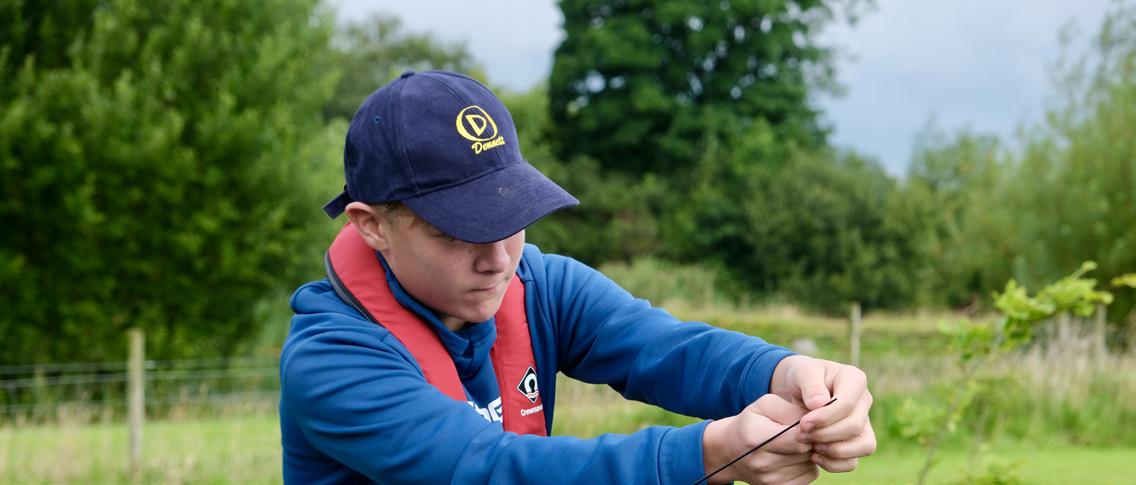
Strategic Context
The way ahead will be founded on the key pillars of Knowledge, Stewardship and Sustainability in everything that we do. Recognising the wealth of knowledge held by our staff but also by our stakeholders will be key to bringing about the changes needed. The development of a sense of ownership will help to bring about lasting change in our fisheries and develop local champions who can sustain interventions into the future.
The four key strategic themes that have been developed in the Strategic Plan are;
Sound Evidence Base Communications & Partnerships
Maximising Potential Successful Delivery
These high level strategic themes will help to guide the delivery of fisheries and angling development in Foyle and Carlingford over this planning period. These themes are aspirational and will take a conscious concerted effort across the board within the Agency to deliver.
The Current Situation
Demographics
It is widely accepted that angling is primarily male dominated and that the majority of anglers are middle-aged or older. The results of our 2021 angling club online questionnaire would support part of this assumption. Only 3% of anglers within the clubs surveyed were female and only 15% of all anglers in these clubs were juniors. A massive 82% of all anglers in the clubs are male, showing how far the sport has to go to encourage participation by female anglers.
All angling clubs that took part are inclusive to all and the reasons for low numbers of female anglers need to be understood and addressed. There are initiatives such as the Irish Ladies Fly Fishing Association who have run introductions to fly fishing events within the Foyle area in the past. There is a definite need to understand the factors influencing female anglers engaging with clubs and the sport more generally.
The number of junior anglers is equally low and it is important to remember that angling is a sport for life and that not all junior anglers will sustain their interest in the sport. A large number of juvenile anglers will be needed to sustain a flourishing angling community in the future. The multitude of other sports, activities and electronic stimuli that are available nowadays for children means that angling will need to position itself well to ensure it is able to attract and engage with both youngsters and their parents as a choice. The work
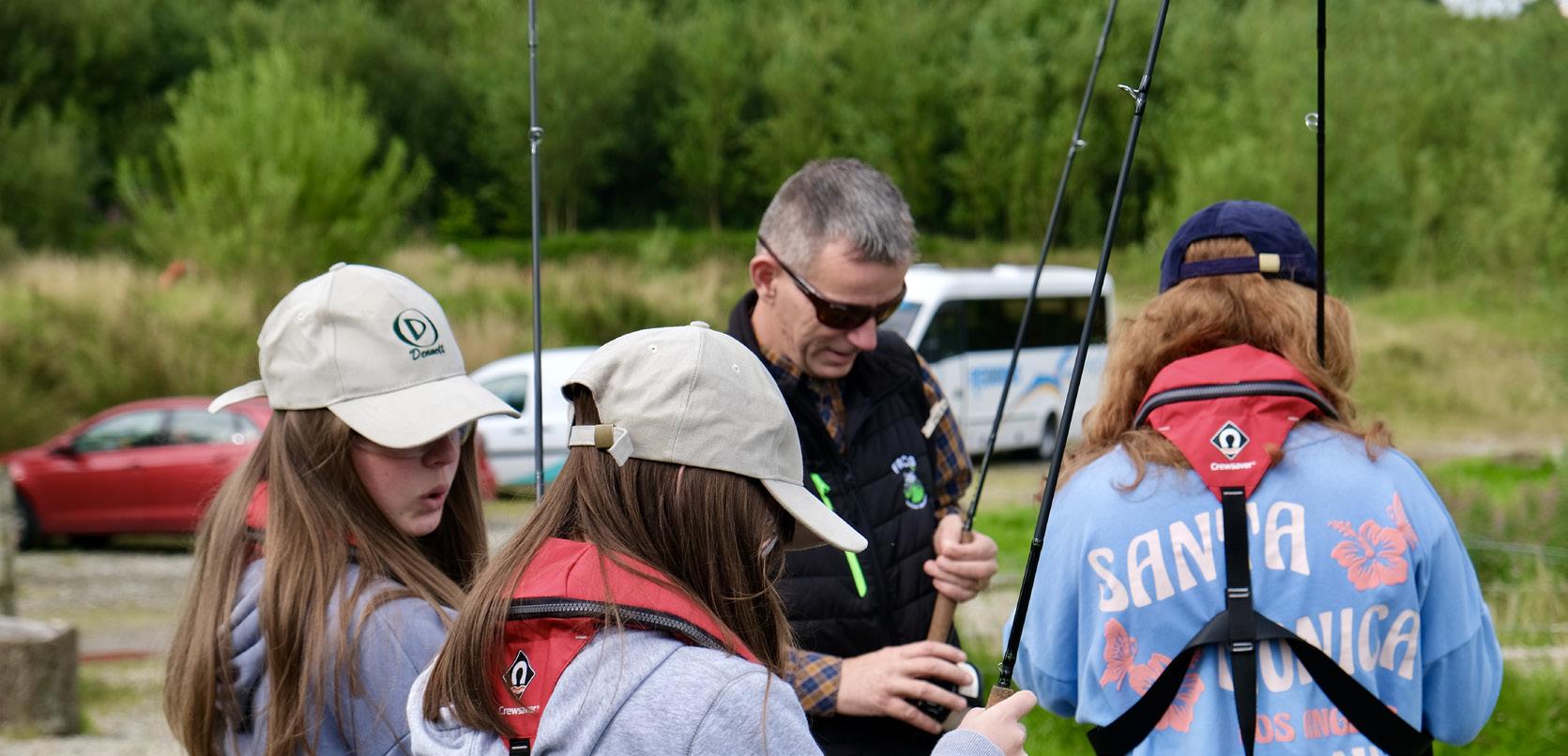
Angling Coaching Capacity
More than half the angling clubs in the Agency’s areas have angling coaches of some type within their membership. In total, 50 angling coaches are present within the clubs that responded to the 2021 angling club online questionnaire with the most common qualification being the entry Level 1 Angling Coaching Course. Only one angling club had a coach with a specific qualification for coaching anglers with a disability. Access to coaching programmes and support for clubs to develop coaches will be required to increase proper structures for the development of the sport in the future. Federations can play a key role in the delivery of these programmes and Ulster Angling Federation (UAF), Irish Federation of Sea Anglers (IFSA) and National Coarse Fishing Federation of Ireland (NCFFI) are currently engaging with their member clubs on delivering programmes on the ground. Greater coordination of these programmes is needed and an ability to follow through when coaches are trained up to ensure they are using their skills for the benefit of the clubs who have invested in them.
Youth Angling
Safeguarding of children in sport is an essential requirement, which angling clubs need to become more aware of so they can engage with training that is readily available from sports bodies and local sports development initiatives such as the Donegal Sports Partnership. The majority of clubs in Foyle and Carlingford do not have safeguarding policies or training in place to allow them to work with junior anglers safely. This needs to be addressed immediately and encouragement from the angling federations may be necessary.
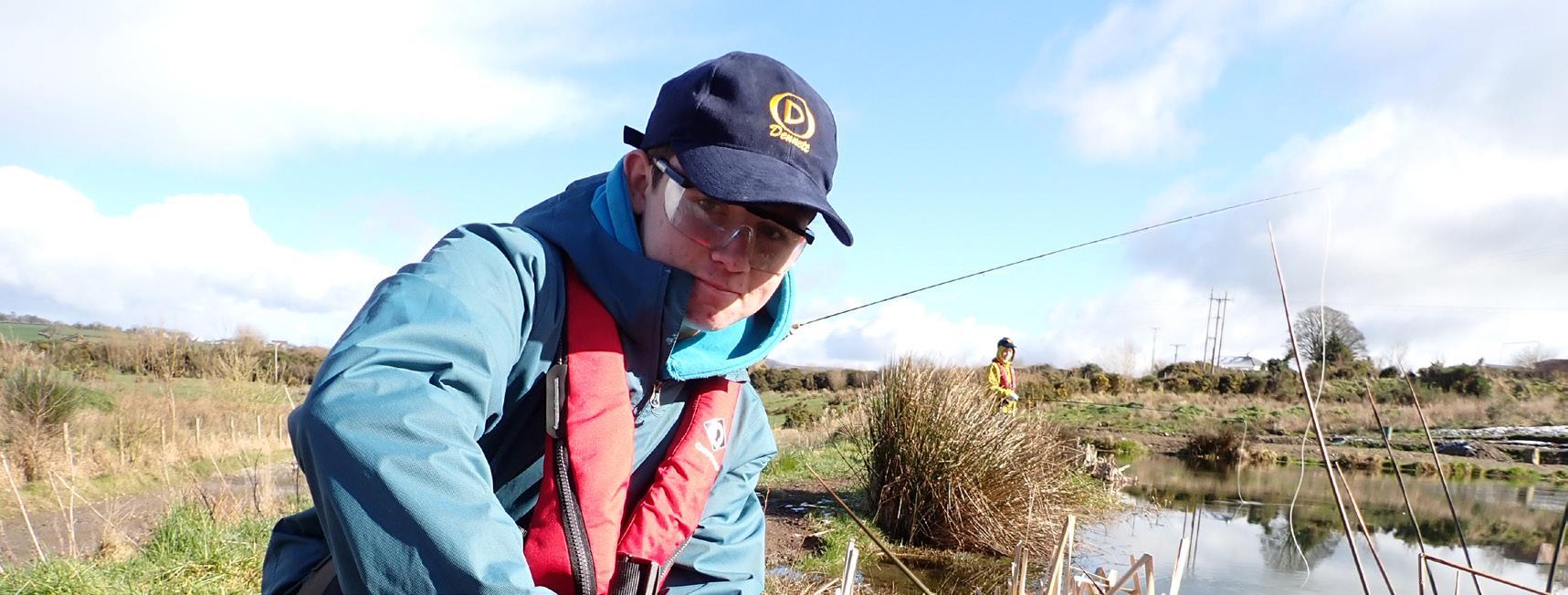
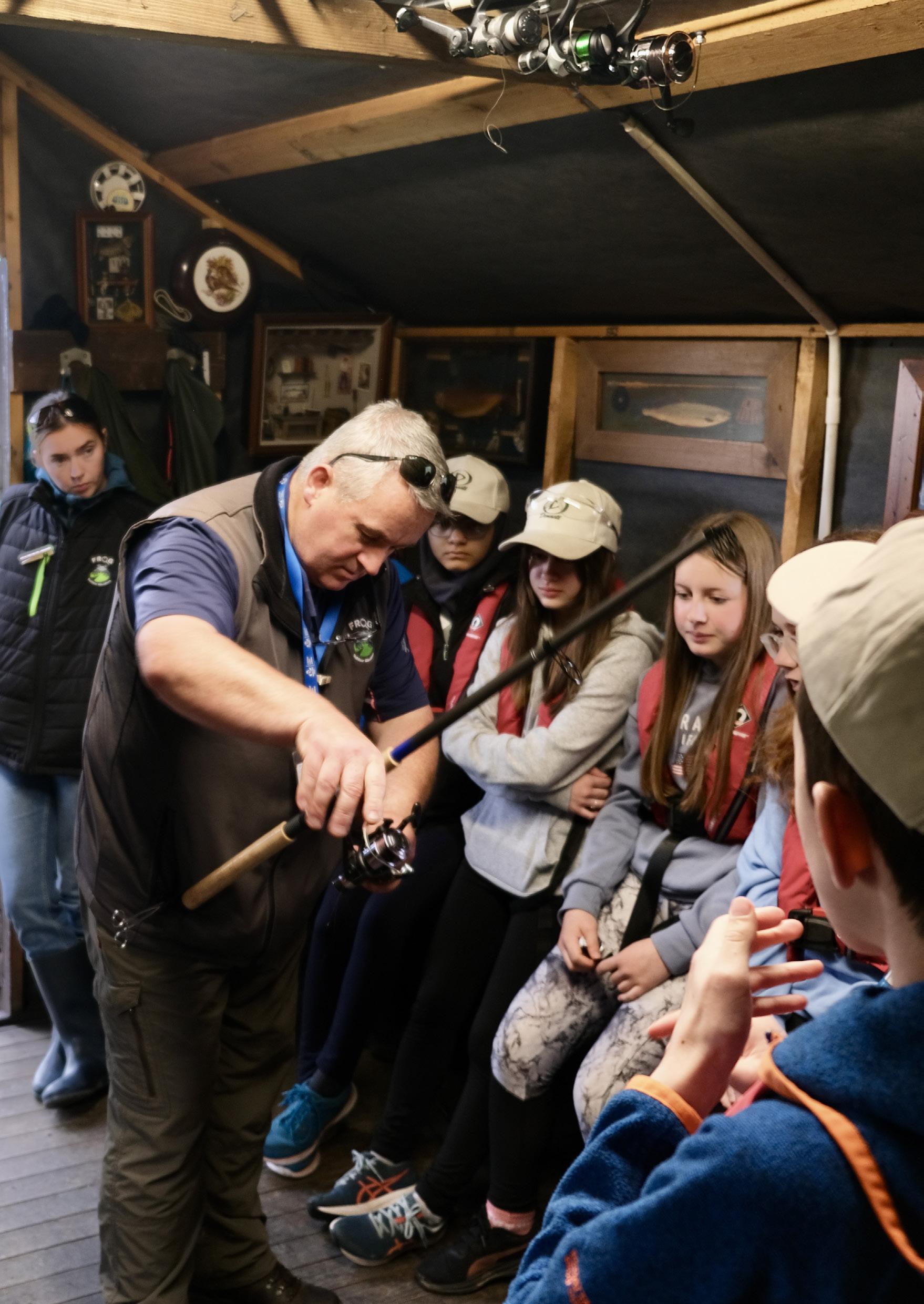
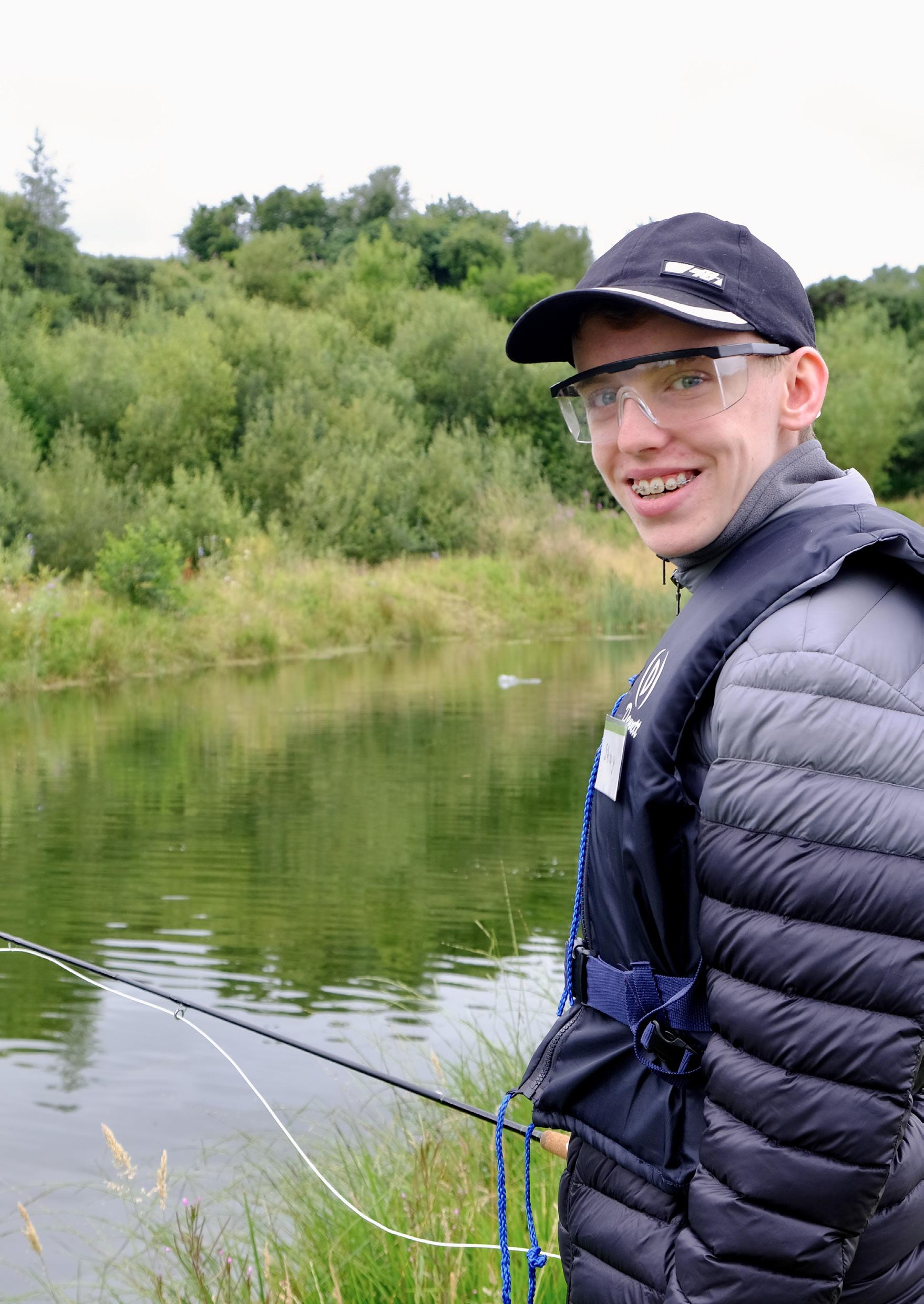
Q32 Does the club/fishery have safeguarding policies in place and have members/ staff been training in working with children and vulnerable adults?
Given that the majority of angling clubs do not have safeguarding in place, it is not surprising that the same proportion do not run any introductory angling sessions to engage with novice and junior anglers. These types of events can help to promote the work of clubs and federations and provide a quick, safe and controlled method of introducing juniors to the sport of angling.
Q33 Does the club/fishery run any ‘try fishing’ days to engage with junior and novice anglers?
Angling with a Disability
The majority of clubs do not have any angling facilities for those with a disability available within their waters. For the most part clubs have used external funding to develop these facilities. Only four of the clubs that responded to our 2021 online questionnaire ran events for anglers with a disability showing just how little engagement takes place in this regard. The availability of more and better facilities for anglers with a disability will of course be a priority.
Angling Access Improvement
The vast majority (>80%) of clubs in Foyle and Carlingford have been involved with angling access improvements in the past and are willing to share the details of these works with the Agency. It would be helpful to gather as much of this information as possible on an angling infrastructure GIS layer to help plan future development needs and keep track of infrastructure replacement frequency. Engagement with the clubs on the location of these works could involve development of an online recording form through a GIS platform to allow clubs to independently submit this information to the Agency.
Funding for these works has come from a combination of external sources and in-house funding. The majority of external funding programmes require matched funding from the applicant and this may account for the high proportion of in-house funding. The majority of clubs consulted within 2021 felt that it was difficult to access funding for this type of access work and almost all had a future need for further access works in their fisheries. Only 50% of the clubs had a development plan in place for access improvement works showing that more could be done to help clubs draft clear, evidence-backed development plans.
Biosecurity and Invasive Species
Only two clubs within Foyle and Carlingford have biosecurity stations at present. This is worrying given the immediate risk to fisheries from invasive species that can be transported on fishing equipment and clothing. It should be a priority for all angling clubs to ensure biosecurity stations such as dipping areas and spray down areas are available for members. On a positive note the vast majority of clubs are willing to include biosecurity stations in the future and this is something that the Agency should consider assisting with as a priority.
Himalayan balsalm and Japanese knotweed are the two most common invasive species present within the fisheries that these clubs represent, although giant hogweed and others such as rhododendron and mink are also present.
Over half of all clubs that responded to the 2021 online questionnaire actively control predators within their fisheries with the most common predators controlled being cormorants and mink. The majority of clubs who control predators such as cormorants do so under license by club members.
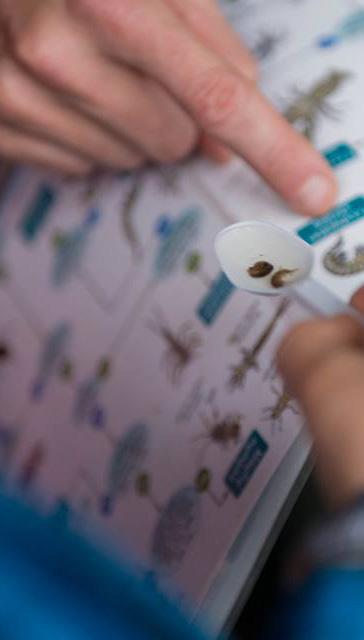
Citizen Science and Community Engagement
Many angling clubs are now actively engaged with citizen science programmes in an effort to understand their river catchments better and to ensure they have the ability to monitor the health of the ecosystem and mitigate against any risks. Only 30% of the clubs that responded to the 2021 online questionnaire take part in citizen science programmes such as Riverfly monitoring, water quality monitoring, invasive species monitoring and pollution reporting. This type of work helps to empower angling club members and develops a sense of ownership.
There was almost unanimous interest in engaging with citizen science programmes from the clubs that responded to the 2021 online questionnaire which could suggest that they need more information, connection and training on the current programmes that are available. Some programmes such as Riverfly monitoring have costs associated with them to get off the ground and this may be a limiting factor for some clubs. The need for funding to allow clubs to engage more with citizen science initiatives should be investigated.

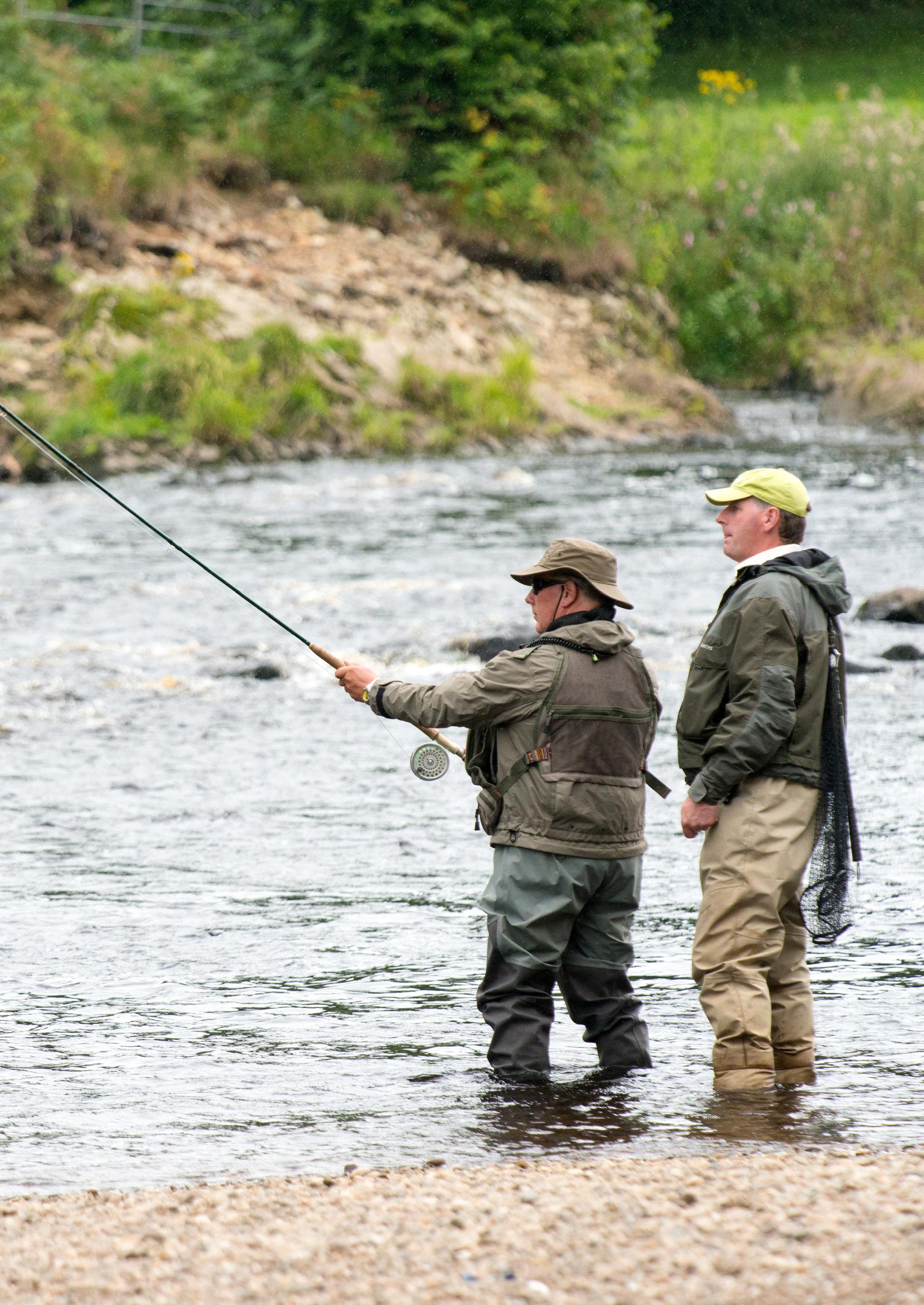
Implementing the Action Plan
Implementation of this Action Plan will take a significant effort and resources, and will require excellent communication and a partnership approach with many groups and organisations in our catchments. Partnership working will help the Agency to promote its identity as the competent authority for fisheries within Foyle and Carlingford and will lead to new opportunities for collaboration and access to untapped funding streams.
The successful delivery of these actions can only be achieved with the appropriate resources and funding, and many will require extensive preparatory work and relationship building before they can be achieved. An important element of this action plan will be to ensure that the Agency has identified the appropriate staffing structure and resources needed to deliver these actions in the long term. The need for a specific unit within the Agency to manage and deliver on these actions has already been identified in the Strategic Plan.
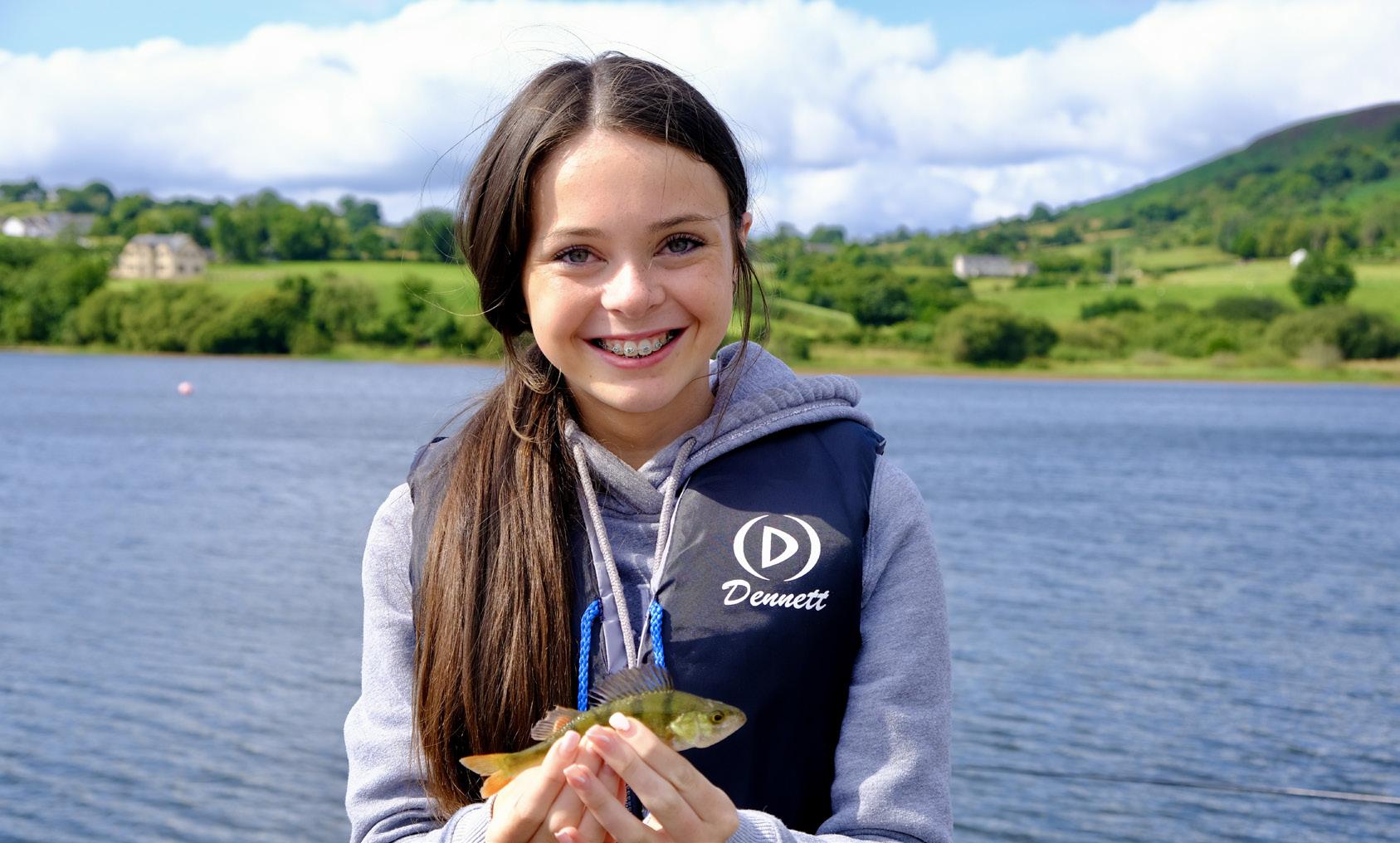
Angling
Communication with Angling Stakeholders
Constructive engagement with NI Angling Forum/ Angling Conference, Angling Clubs and Federations
Delivery of tailored workshops/ conferences for angling stakeholders and riparian landowners/industry reps
Adhere to the Agency’s Customer Service Charter in all communications with stakeholders
(S)
Better working relationships and productive networks
(S)
Knowledge transfer, awareness raising and networking
(S)
Better working relationships
Attendance records and minutes, recorded annually
Press releases, media coverage and workshop/ conference, recorded annually
Feedback from angling clubs and federations in the Bi Annual Survey
DAERA/UAF/ NCFFI/IFSA
Angling clubs, NGBs, DAERA, IFI,LAWPRO, NIEA, EPA, OPW
Angling NGBs and clubs
Promote the involvement of all angling clubs with hubs as a means of engaging with novice/junior/ anglers with a disability and ensure coaching capacity is available
Provide support and guidance to private fisheries who wish to set up as Angling hubs and who wish to fund Initiatives for anglers
Link local schools and other community groups to their nearest angling hubs
Development of Angling Hubs
Outcome Monitoring Metric Partners
(S)
Improved pathway to angling for new anglers
(S)
Improved pathway to angling for new anglers
Biannual survey of angling clubs
Biannual survey of private fisheries
Angling clubs
(M)
Improved pathway to angling for new Anglers
Press releases, licence sales, recorded annually
Private fishery owners
Schools, clubs and private fisheries
Support and Guidance for Clubs
Action Timeframe
Short (S) Medium (M)
Long (L)
Signposting clubs to information from national sporting bodies and NGBs to assist with good governance, funding and health and safety
Ensure biosecurity policies, signage and biosecurity stations are in place in all fisheries
(S)
Outcome Monitoring Metric Partners
Better governance within all angling clubs
(S)
Better protected fisheries
Biannual survey of angling clubs
Angling clubs, NGBs, sports ireland/ni
Encourage clubs to draft development plans for development plans for their fisheries in partnership with
Encourage all angling stakeholders to engage in anti-litter campaigns such as the national line recycling scheme
(M)
More coordinated fisheries development
Biannual survey of angling clubs and audit of angling facilities
Biannual survey of angling clubs
Angling clubs, NGBs, NIEA, LAWPRO, DAERA, ISI, ISNI
(M)
More sustainable angling, raise public image of angling
Biannual survey of angling clubs
Angling clubs, NGBs, Sports Ireland/NI
Angling clubs, NGBs, Leave No Trace, KNIB, Tidy Towns, ALRS
Audit all current angling access points and infrastructure in a GIS database and develop key quality criteria for all infrastructure
Develop detailed plans for access improvement for anglers with a disability throughout the catchments in partnership with disability support groups
Promote the use of GIS data collection by Angling stakeholders to contribute to the Angler Access GIS databases
Angling Access/Infrastructure
(S)
Increased knowledge base
(M)
More and better access for anglers with a disability
GIS database records, recorded annually
Biannual survey of angling clubs and audit of angling facilities
Angling clubs
(S)
More efficient data collection and reduced costs
GIS database records, recorded annually
Angling clubs, NGBs, local councils, disability sports groups, BDAA, IDAA
Angling clubs
Citizen Science for Anglers
Action Timeframe
Short (S) Medium (M)
Long (L)
Promote the use of GIS data collection by angling stakeholders to contribute to the Invasive Species/ Predators GIS database
(M)
Outcome Monitoring Metric Partners
More efficient data collection and reduced costs
GIS database records, recorded annually
Assess the opportunities for funded programmes to develop citizen science programmes for Anglers such as riverfly monitoring, habitat assessment, water quality and invasive species
Develop collaborative partnerships on fisheries research such as tagging and tracking with angling clubs
(M)
More efficient data collection and reduced costs
Biannual survey of angling clubs
Angling clubs
(S)
Better relationships, increased openness and transparency, knowledge transfer
Number of MOUs signed for projects, recorded annually
Angling clubs
Angling clubs
E-Licensing and Online Catch Return System
Action Timeframe
Short (S)
Medium (M)
Long (L) Outcome Monitoring Metric Partners
Consult with anglers on the effectiveness of E-licence and catch return system and identify improvements achievable
Identify practicalities of accessing angling club catch returns and corroborating these with LA database
(S)
Better communications with stakeholders
(M)
Better relationships, increased openness and transparency, knowledge transfer
E-licence and catch return system development, recorded annually
Number of MOUs signed for projects, recorded annually
Angling Marketing
Action Timeframe
Short (S)
Medium (M)
Develop a list of angling guides in Foyle and Carlingford
Angling clubs
Angling clubs
Review all promotional material on Angling in Foyle and Carlingford and update as necessary
(S)
Long (L) Outcome Monitoring Metric Partners
More effective promotion of the area
(S)
More effective promotion of the area
Angling guide list online, recorded annually
Updated Angling Promotional material, recorded annually
Angling clubs, communication advisors, angling tourism providers, Tourism NI/ Ireland, DAERA/ IFI
Angling clubs, communication advisors, angling tourism providers, Tourism NI/ Ireland,
Evaluate the benefits of attending angling fairs and the use of new technology and online marketing to promote angling in Foyle and Carlingford to a wider audience
Promote the use of signage at all fisheries to welcome and inform visiting anglers
Identify the opportunities for national and international angling competitions to help promote the Foyle and Carlingford areas
Encourage angling journalist and media visits to our fisheries
(S)
Support the development of new emerging angling opportunities such as mullet on the fly, kayak angling, coastal sea trout angling, saltwater fly fishing, species hunts, small boat angling
More effective promotion of the area
Attendance records, Licence sales records, recorded annually
(S)
(M)
More welcoming and inviting fisheries with easy access
Increased promotion of the areas and awareness raising with the public
(S)
Increased promotion of the areas
Angling Club, private fishery surveys,
Number of competitions held per annum
Angling clubs, communication advisors, angling tourism providers, Tourism NI/ Ireland, DAERA/ IFI
Angling clubs, councils
Number of media visits and press coverage, recorded annually
New Opportunities in Angling
(L)
More diverse angling offering available to local and visiting anglers
Biannual survey of angling clubs, fisheries and press releases
Angling clubs, communication advisors, angling tourism providers, Tourism NI/ Ireland, DAERA/ IFI
Angling clubs, communication advisors, angling tourism providers, Tourism NI/ Ireland, DAERA/ IFI
Angling clubs, NGBs
Ensure new developments and initiatives take cognisance of anglers needs at an early stage
Assess the opportunity for tagging competitions for sea angling species to generate scientific information
(S)
Better protected fisheries
(M)
Better informed fisheries management
Number of responses from angling groups in development consultations, recorded annually
Number of tagging competitions run, recorded annually
Outreach and Education
Evaluate the benefits of having a fishing simulator and/or VR fishing experience as part of our outreach offering
Ensure the link between sustaining fish stocks and developing angling is made within our education programmes
(M)
Better engagement with tech savvy youth
Report on VFM and effectiveness of a simulator
Angling clubs, NGBs
Angling clubs, NGBs
(M)
Increased sustainability of angling
Sustainability module included in education programmes, recorded annually
Angling clubs, NGBs, schools
Angling clubs, NGBs, schools
Social Prescribing of Angling for Mental Health and Wellbeing
Form links with local mental health and social prescribing authorities to identify how angling can be included in their programmes
(M)
Better links with mental health and social prescribing authorities, awareness raising, project proposals
Number of hours of social prescribed fishing, recorded annually
NHS, PHA, HSE, SPRING
Identify the need for specialised training for angling coaches to deliver social prescribing courses and signpost NGBs to providers
(M)
Better equipped angling coaches and better quality coaching
Number of social prescribing trained angling coaches, recorded annually
Angling with a Disability
Action Timeframe
Short (S)
Medium (M)
Long (L)
Audit all angling facilities within Foyle and Carlingford and ensure they meet minimum standards for inclusive sports facility accreditation schemes
Encourage all clubs have appropriate training, initiatives and awareness of the needs of anglers with a disability
Engage with disability support groups to develop new plans for engaging with anglers with a disability and encouraging more participation
Encourage angling federations to promote angling initiatives for all abilities within their member clubs
(S)
Outcome Monitoring
Better angling facilities for all
Angling Coaches, NGBs
Metric Partners
Biannual angling access audit
Angling clubs, private fisheries, local councils
(S)
More effective clubs and better awareness of the needs of anglers with a disability
(M)
More anglers with a disability taking up the sport
Biannual angling club survey
Angling clubs, NGBs, Disability sports groups, BDAA, IDAA
(M)
More effective clubs and better awareness and more pathways to angling for anglers with a disability
Angling with a disability guidance developed, recorded annually
Biannual angling club survey
Angling clubs, NGB’s, Disability sports groups, BDAA, IDAA
Angling clubs, NGBs, Disability sports groups, BDAA, IDAA
Addressing the Gender Bias in Participation
Action Timeframe Short (S) Medium (M) Long (L)
Ensure all junior/novice angler initiatives are fully inclusive and non-gender specific in nature
Identify new ways to promote participation to all genders such as through social media influencers
Encourage angling federations to promote gender inclusive angling initiatives for and within their member clubs
Utilise existing frameworks such as the ILFFA to generate more interest and participation within the sport
Promote the health and wellbeing advantages of angling as a method to encourage more broader participation i.e. “fishing for mindfulness”
(M)
Outcome Monitoring Metric Partners
Better balance of genders participating in angling
(M)
Better balance of genders participating in angling
(M)
Better balance of genders participating in angling
(S)
Better balance of genders participating in angling
(M)
Better balance of genders participating in angling
Annual licence sales and biannual angling club survey
Annual licence sales and biannual angling club survey
Annual licence sales and biannual angling club survey
Annual licence sales and biannual angling club survey
Annual licence sales and biannual angling club survey
Angling clubs, NGBs, schools, private fisheries, Sports Ireland/NI
Communications advisors, angling clubs, NGBs, Sports Ireland/NI
Angling clubs, NGBs, Sports Ireland/NI
Angling clubs, NGBs, ILFFA, Sports Ireland/NI
Angling clubs, NGBs, Sports Ireland/NI
Sustainability
Action Timeframe
Short (S) Medium (M)
Assess the sustainability of angling in Foyle and Carlingford in the face of a changing climate
Pilot sustainable use of plastic and recycling/ anti-litter initiatives within the angling community in our catchments
Ensure national antilitter and recycling messages are being repeated in Foyle and Carlingford to anglers
(M)
(S)
Promote the inclusion of sustainability training as part of junior/novice angler coaching and training initiatives
(M)
Better awareness of the environmental footprint of angling
More sustainable angling and reduced environmental footprint
More sustainable angling and reduced environmental footprint
Annual report on the sustainability of angling.
Number of recycling initiatives, reported annually
Number of press releases, reported annually
Angling clubs, NGBs, Sports Ireland/NI
(M)
More sustainable angling and reduced environmental footprint
Evidence of sustainability modules within angling coaching courses, reported annually
Health and Safety
Action Timeframe
Short (S)
Medium (M)
Long (L)
Collaborate with water safety partners to repeat national messaging to anglers in Foyle and Carlingford through clubs and federations
(M)
Safer angling for all
Press releases from clubs and federations, reported annually
Angling clubs, NGBs, Sports Ireland/NI
Angling clubs, NGBs, Leave No Trace, KNIB, Tidy Towns, LAWPRO, NIEA, communications advisors
Angling clubs, NGBs, Sports Ireland/NI
Angling clubs, NGBs, Sports Ireland/NI, local councils, RNLI, Coast Guard, rescue organisations
Promote the use of health and safety training as part of junior/novice angler coaching and training initiatives
(S)
Safer angling for all
Evidence of H&S modules within angling coaching courses, reported annually
Junior/Novice Angling Development
Action Timeframe
Short (S)
Medium (M)
Long (L)
Encourage all clubs to have safeguarding policies, Child Protection Officers and Development Officers
Develop a toolkit for clubs to guide development of youth angling in partnership with federations, sports bodies and youth action groups
Promote the development of Junior Angling competitions and support local junior anglers selected for national teams where funding allows
Identify the use of angling initiatives for Cross Border Peace and Reconciliation projects
Angling clubs, NGBs, Sports Ireland/NI
Consider an umbrella Go Fishing promotional Initiative for all disciplines in Foyle and Carlingford linked to current national/ international initiatives
(S)
Outcome Monitoring Metric Partners
A safe environment for all to enjoy angling
Biannual angling club survey
(M)
(S)
(M)
(M)
A coherent, effective and safe approach to develop pathways for young anglers
Increased public awareness of achievements of young anglers. Presentations from junior anglers at outreach programmes.
Increased angling initiatives and funded coaching courses in cross border areas
Increased public awareness about angling opportunities
Biannual angling club survey
Angling clubs, NGBs, Sports Ireland/NI, local councils, local sports partnerships
Angling clubs, NGBs, Sports Ireland/NI
Number of press releases, reported annually
Angling clubs, NGBs, Sports Ireland/NI, communications advisors
Number of funded initiatives, reported annually
Number of press releases, reported annually
Angling clubs, NGBs, Sports Ireland/NI
Angling clubs, NGBs, Sports Ireland/NI
ALRS Anglers National Line Recycling Scheme
BDAA British Disabled Angling Association
DAERA Depar tment of Agriculture, Environment and Rural Affairs
HSA Health and Safety Authority
HSE Health Service Executive
HSENI Health and Safety Executive NI
IFI Inland Fisheries Ireland
IFSA Irish Federation of Sea Anglers
ISI Invasive Species Ireland
ISNI Invasive Species Northern Ireland
KNIB Keep Northern Ireland Beautiful
LAWPRO Local Authority Waters Programme
NCFFI National Coarse Fish Federation of Ireland
NGB National Governing Body
NHS National Health Service
NIEA Nor thern Ireland Environment Agency
OPW Office of Public Works
PHA Public Health Agency
DFIR Dfl Rivers
RNLI Royal National Lifeboat Institution
RT Rivers Trust
UAF Ulster Angling Federation
